Igbo Spirituality
Ekwensu Is Not The Devil, Satan Or Lucifer – Ndi Igbo Have Been Deceived
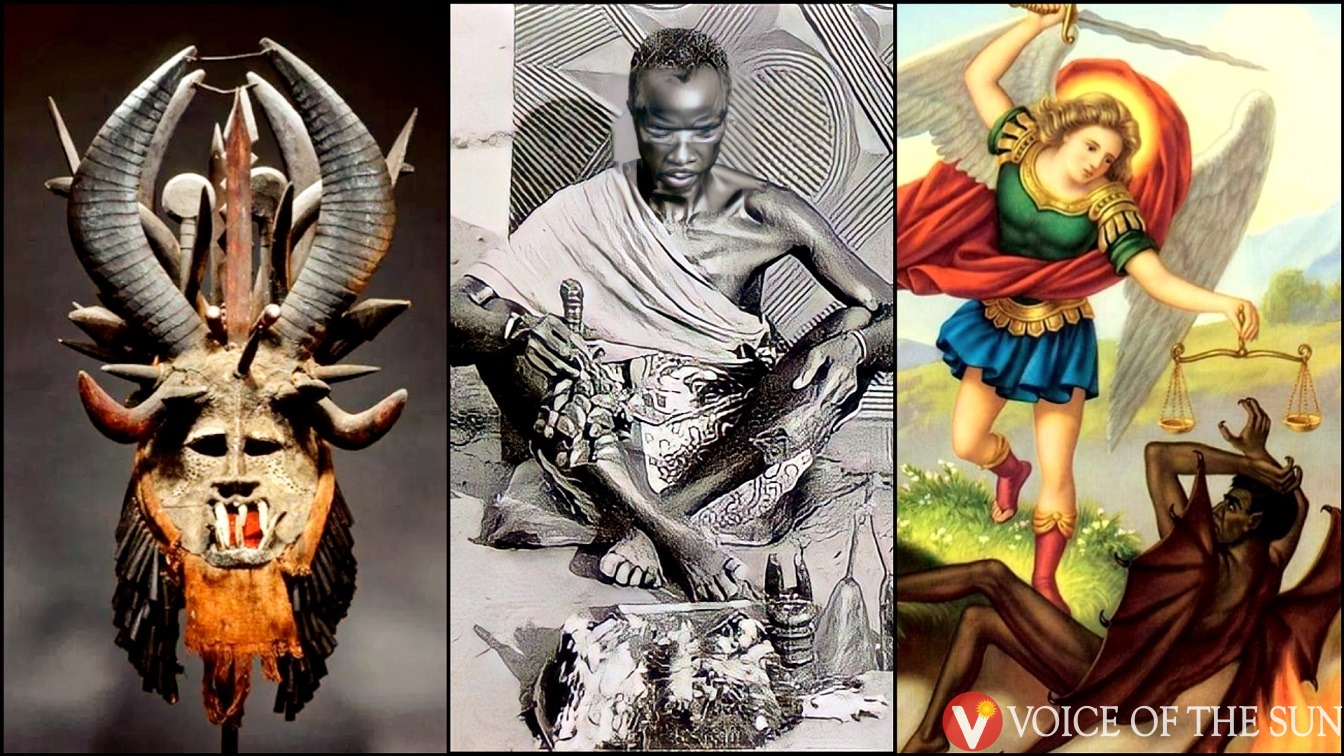
Ekwensu Is Not The Devil, Ana Ìgbò: Growing up as an Igbo child, I regularly encountered the use of the word Ekwensu when my parents or Parish priest talked about heaven and hell. They referred to the devil as Ekwensu, and that he was evil and dwelt in hell. When bad things happen, it was blamed on Ekwensu. I witnessed adults call people who were wicked “Ekwensu”. It was the go-to word for anyone who was exhibiting one form of evilness or the other.
I would continue to hear this word, and over time it became truth for me. I didn’t bother to question it, because my parents, priests, and society, in general, used the term Ekwensu to refer to the devil. It was only many years after I finished university, was now an adult, and started learning about Ọdịnala Igbo and certain aspects of our culture, did I find out that Ekwensu was not the Devil.
Over the years, in my attempt to fully understand who we really, are and the spiritual importance of the deities our ancestors communed with, in their practice of Ọdịnala (as a superior form of spirituality for Ndi Igbo), I have spoken to various Dibịas and enlightened elders, and I have found out that truly, Ekwensu is not the devil of Christianity, but one of the strongest forces in Ìgbò cosmology.
Let us go further into this rather controversial yet important topic, to better understand how much we have been deceived as a people.
Ụmụ nnem, Ekwensu is not the Devil, as we have been made to believe by the Christian missionaries who interfaced with our ancestors during the conversion of Ndi Igbo into Christianity. Ekwensu is one of the great and popular Ìgbò Alusi (deities/Divine force) just like Anyanwu, Ana/Ani, Agbala, etc.
Ekwensu is an Alusi/God of war and bargains. He fights chaotic spirits. Ekwensu is an Igbo God, who is often invoked during difficulties in business, and at times of war. Ekwensu in Ìgbò spirituality is what you would call a ‘covenant keeper’, and an obedient servant, who only acts when called upon.
Ekwensu is the Ìgbò version of the Greek god of war, Ares, for those who are familiar with the Greek Iliad. And we don’t see Europeans calling Ares the Devil, Satan, or Lucifer. So why did we as a people allow the same Europeans to supplant the true characteristics of Ekwensu with the Devil? Why does everything foreign have to be preserved and ours tarnished?
Our converted ancestors were lied to, and they in turn passed down that lie to us–a lie, that has now become a truth, fictitiously embedded in the fabric of our religious and social life, as Ndi Igbo.
How Ekwensu Came To Be The Devil – The Contact With the Missionaries
When the missionaries came into ana Igbo in 1857, their major goal was to convert Ndi Ìgbò to Christianity and to win souls for the mother church. This goal was not easy for them. So they devised many means to make sure that the gospel of Christianity penetrated the hinterlands of ana Ìgbò. The first missionary group to set foot in ani Ìgbò was the CMS (Anglican Church) in 1857, while the RCM (Roman Catholic Church) followed in 1885. These were the top two missionary groups, among the groups that came and competed to win the proverbial Ìgbò souls.
From 1885 to the first three decades of the 1900s, Bishop Joseph Shanahan, an Irish priest, was one of the leading and most successful missionaries, who converted a sizable amount of Ndi Ìgbò. He bought the hearts of his converts with European medicine and Western education. He also learned the Ìgbò language and did not solely rely on interpreters for his evangelism to the chiefs, elders, and people of the various towns and villages he went to.
It was this advantage of understanding and speaking the Ìgbò language that aided him in these conversations and arguments about the image of God and the devil with Ndi Ìgbò. Reports in history showed that in his conversation with a certain chief, he likened God to Chukwu, since Ndi Ìgbò believed that no one has seen the creator (Chukwu) and that he was the one who created the world. He compared the Christian God he was bringing to Chukwu, but in the usual condescending approach of Christians, told the chief (our ancestors) that our version of the creator (Chukwu) was incomplete, because it did not portray nor have the holy trinity.
In the same vein, just like other missionaries, he learned about Ekwensu, after having thought the first Ìgbò apostles/converts about the Devil. The missionaries, Bishop Shanahan inclusive, juxtaposed Ekwensu with the devil, since it was important for them to find similarities in Ìgbò cosmology to further their gospel, and in other cases outrightly demonize the parts of Ọdịnala they didn’t understand.
This is a brief analogy of the interaction between the missionaries and Ndi Ìgbò, and how they birthed the lie that Ekwensu was the devil, and over 100 years later, the average Ìgbò person calls the devil Ekwensu.
Understanding The Alusi Ekwensu Better
Ekwensu is also the deity and force of chaos and change. He is seen as a spirit of violence that incites people to perform violent acts when called upon. Thus, after he has been invoked for war, and the issue which brought the war has been resolved, the chaotic aspect of Ekwensu is often banished/cleaned from the people, lest he continues on the warpath through them.
Many enlightened Ndi Ìgbò see Ekwensu as a Divine Principle (Alusi) that comes from Chi-Ukwu/Chukwu/Chineke himself. Ekwensu is the counterbalance of Chukwu (the good God and creator, as Ndi Ìgbò understood the place of Balance in nature, Ọdịnala. But despite this, our ancestors did not perceive Ekwensu to be the devil or to dwell in hell (Hellfire).
The missionaries, when they came, took only the violent/chaotic aspects of Ekwensu and superimposed the devil on him, while leaving out the good part of the Alusi, Ekwensu.
Ụmụ nnem, please know this truth, that Ekwensu is not in hell, and that he did not start any war in the Christian heaven. He did not also deceive Adam and Eve, in the person of Lucifer. Neither is he a serpent nor has an attribute of a serpent.
Ekwensu is an Alusi of Ndi Ìgbò that is still worshipped and called upon to date in ana Ìgbò. There is a village called Anaku, in Anyamelum local government area of Anambra state that worships a very powerful and revered Alusi (deity) called Ekwensu Anaku. This is also the case in many parts of ana Ìgbò where our ancient form of spirituality has survived and is being practiced.
Ụmụ nnem, as I close, please note that the image on the left-hand corner is not Ekwensu, but one of our Ìgbò masks, and is used only for illustration purposes. Deeme nụ.
This Article Was Written By Chuka Nduneseokwu, Editor-In-Chief, of Voice Of The Sun
Please Support and DONATE To Us. Help Us In Preserving Our History, Culture and Beliefs as Ndi Igbo. CLICK HERE to assist us financially.
-
![How Igbo People Started Becoming Christians 181 Years Ago (1841–2022): A Brief History Of Christianity In Ìgbòland [Part I] How Igbo People Started Becoming Christians 181 Years Ago (1841–2022): A Brief History Of Christianity In Ìgbòland/Among The Ìgbò [Part I]](https://voiceofthesun.com/wp-content/uploads/2022/07/How-Igbo-People-Started-Becoming-Christians-181-Years-Ago-1841–2022-A-Brief-History-Of-Christianity-In-Igboland-Among-The-Igbo-Part-I-1-400x240.jpg)
![How Igbo People Started Becoming Christians 181 Years Ago (1841–2022): A Brief History Of Christianity In Ìgbòland [Part I] How Igbo People Started Becoming Christians 181 Years Ago (1841–2022): A Brief History Of Christianity In Ìgbòland/Among The Ìgbò [Part I]](https://voiceofthesun.com/wp-content/uploads/2022/07/How-Igbo-People-Started-Becoming-Christians-181-Years-Ago-1841–2022-A-Brief-History-Of-Christianity-In-Igboland-Among-The-Igbo-Part-I-1-80x80.jpg) Igbo History and Origins3 years ago
Igbo History and Origins3 years agoHow Igbo People Started Becoming Christians 181 Years Ago (1841–2022): A Brief History Of Christianity In Ìgbòland [Part I]
-

 Igbo Cultures And Traditions3 years ago
Igbo Cultures And Traditions3 years agoThe Four Igbo Market Days and Their Significance In Odinala na Omenala ÌGBÒ
-
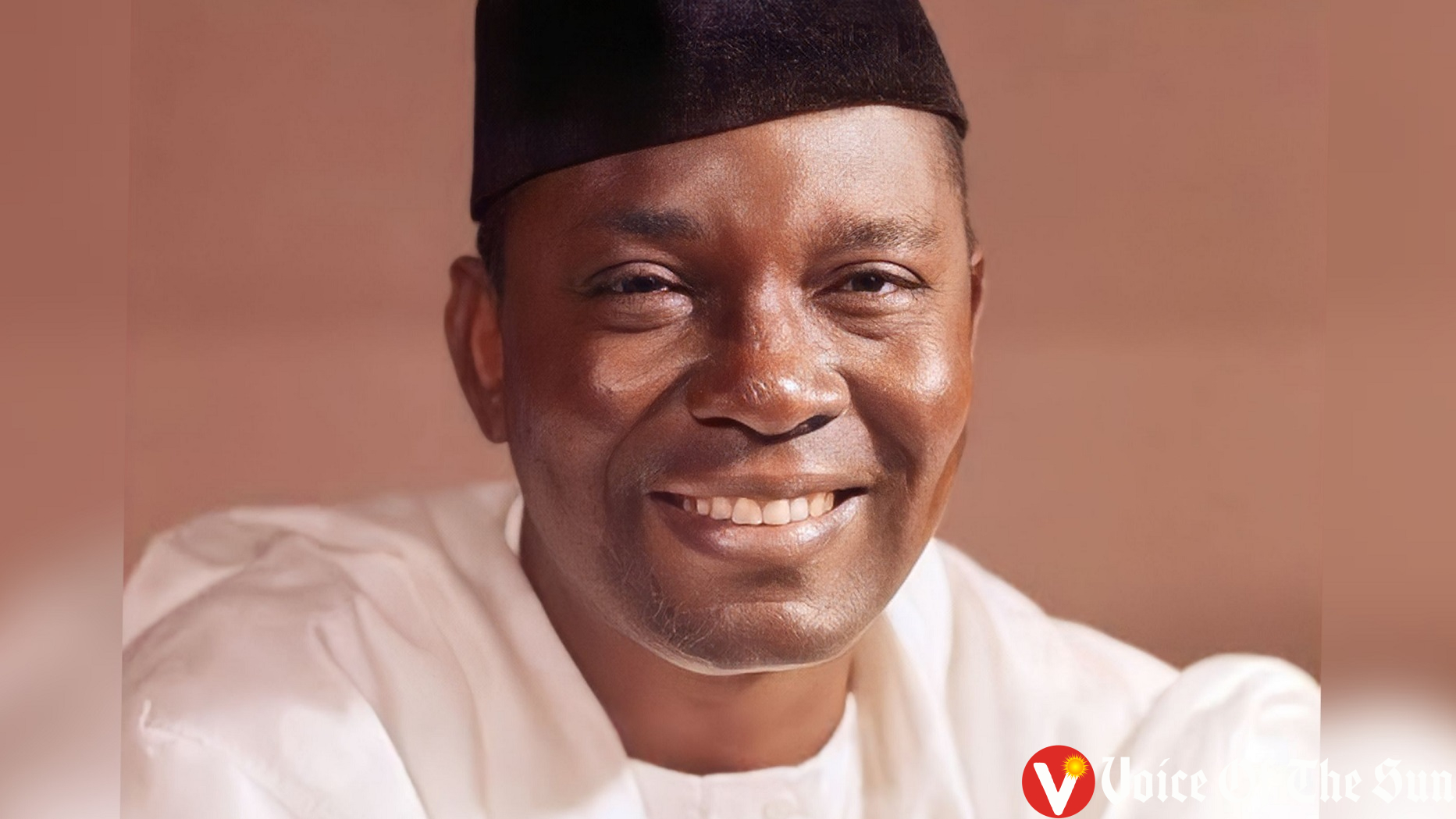
 Igbo History and Origins2 years ago
Igbo History and Origins2 years agoNnamdi Azikiwe: Legacy of a Nigerian Nationalist And Igbo Icon
-

 Igbo News3 years ago
Igbo News3 years agoIgbo Land Is Not Landlocked – We Have The Deepest And Shortest Access To The Atlantic Ocean
-
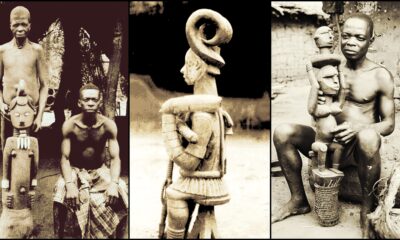
 Igbo Spirituality2 years ago
Igbo Spirituality2 years agoÌgbò Ancestors Did Not Worship Idols and Demons – A Journey Into Ịgọ Mmụọ In Odinana Ìgbò
-
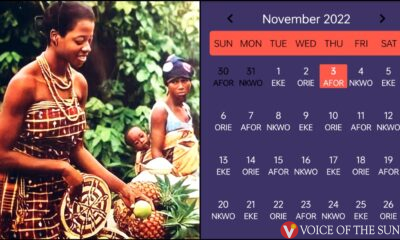
 Igbo Cultures And Traditions2 years ago
Igbo Cultures And Traditions2 years agoWhich Igbo Market Day Is Today – Get The Complete Igbo Calendar
-
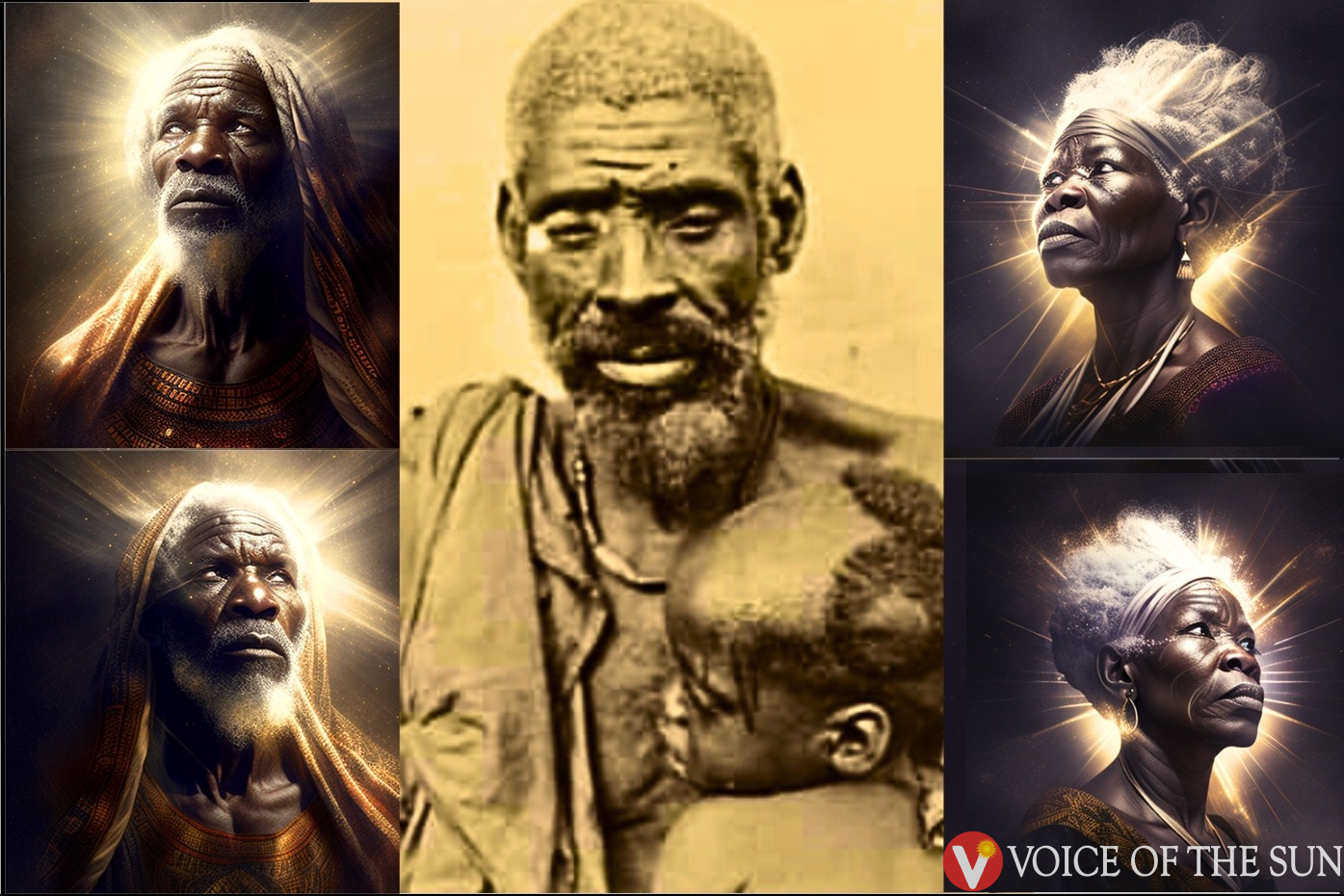
 Igbo Spirituality2 years ago
Igbo Spirituality2 years agoUnderstanding Ndị Ịchie In Igbo Cosmology: Who Are Ndi Ichie In Odinana na Omenana Ìgbò?
-

 Igbo History and Origins2 years ago
Igbo History and Origins2 years agoChukwuemeka Odumegwu Ojukwu: The Life And Legacy Of An Igbo Hero





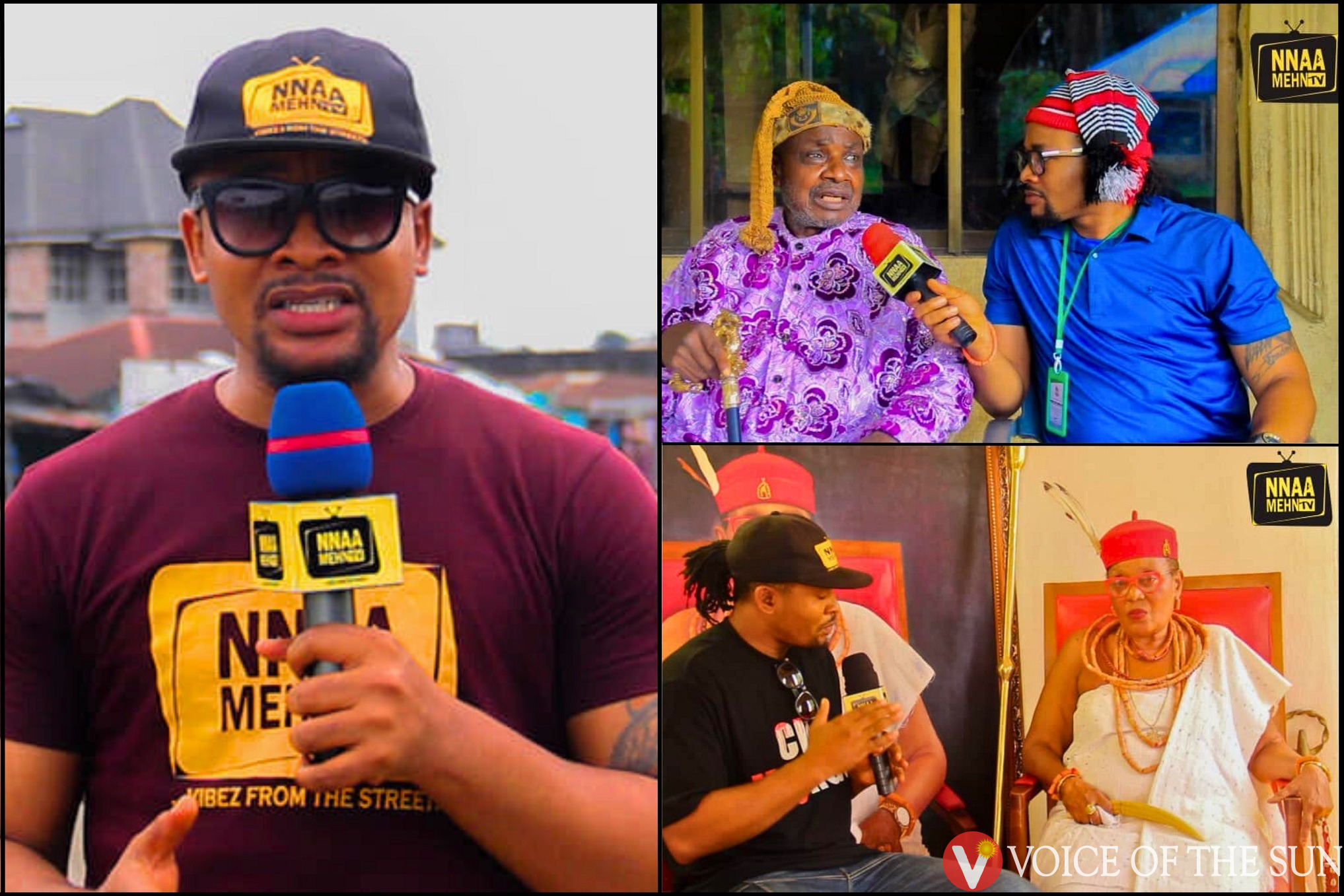
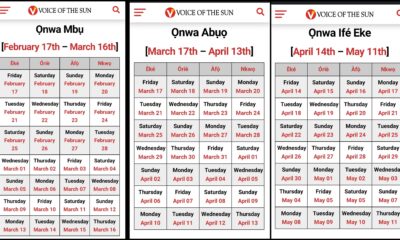





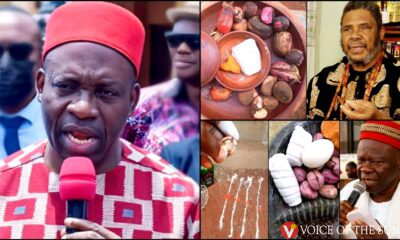





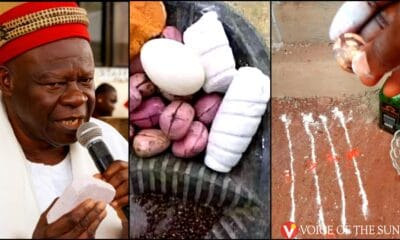

Amarachi
July 21, 2022 at 10:23 pm
This was highly informative. However, I must ask: Do ndị igbo have an equivalent of Satan?
Voice Of The Sun
July 25, 2022 at 3:13 am
No, we do not have an equivalent of satan nne.
Oziomo Jehoshaphat UKAEFI
November 7, 2022 at 4:43 am
Please keep this Re-knowledge up and alert so our New 21st Century Generation will come back to their senses and worship Chukwu okike Abiam and Destroyed this Evil Idol of Britain Religious Enslavement
Jeremiah Onyema
May 7, 2023 at 5:41 pm
You’re doing well nwoke oma, there’s still more work to be done.
Ezediugwu Stella
May 31, 2023 at 6:25 pm
How did now evil related to ekwensu
Ezediugwu Stella
May 31, 2023 at 6:27 pm
What is Satan now called in igbo
Voice Of The Sun
June 2, 2023 at 5:17 pm
There is no Satan in the Igbo worldview.
Comr. Isahson Henry
August 26, 2023 at 9:22 pm
Ajommuo is Devil 😈 in Igbo
Beny Aghachi
October 8, 2023 at 4:45 pm
Keep up the good work brother, am happy we still have people with reasonable understanding of our Igbo cultural and traditions practices ♥️♥️
Voice Of The Sun
October 16, 2023 at 9:01 am
Dalu rinne nwnane.. We will keep it up.